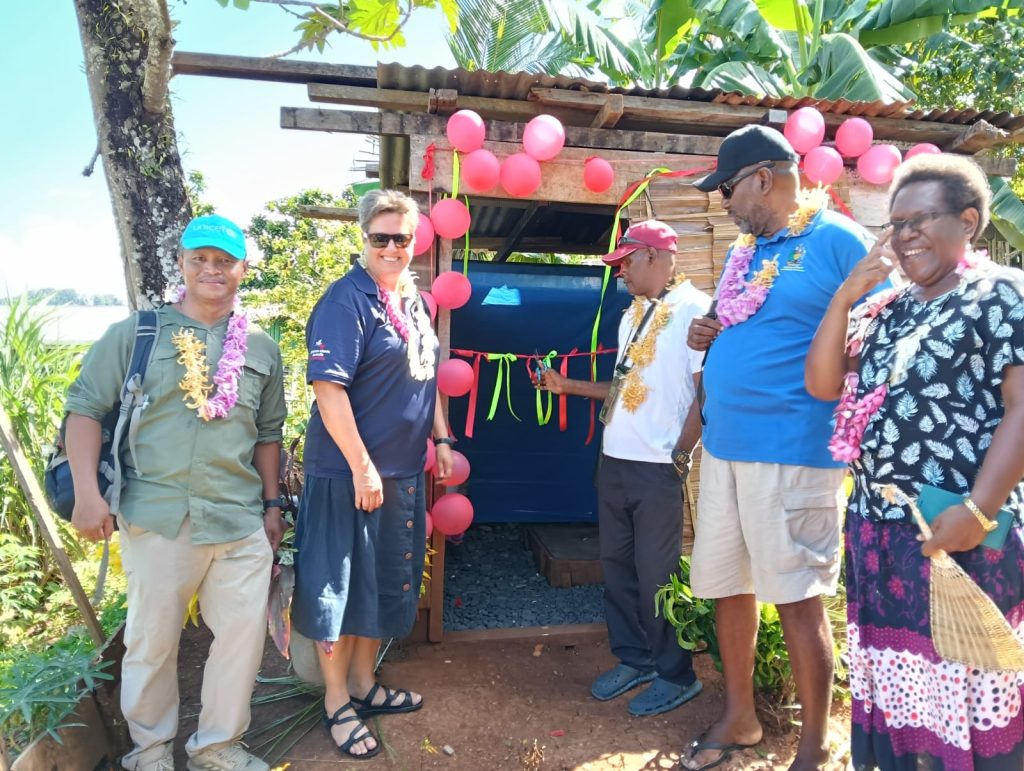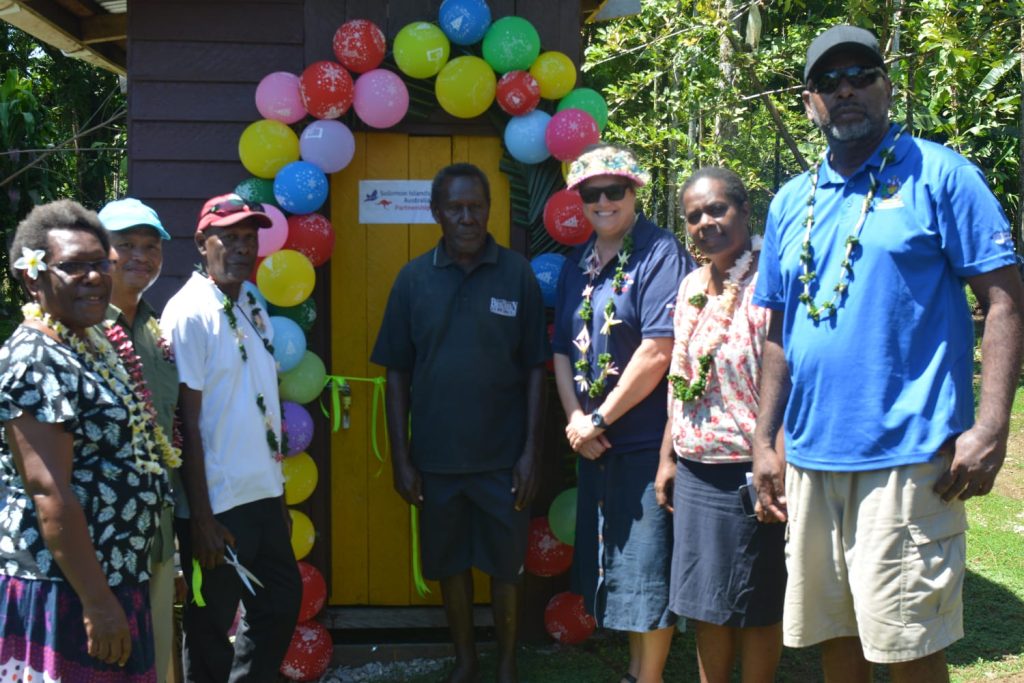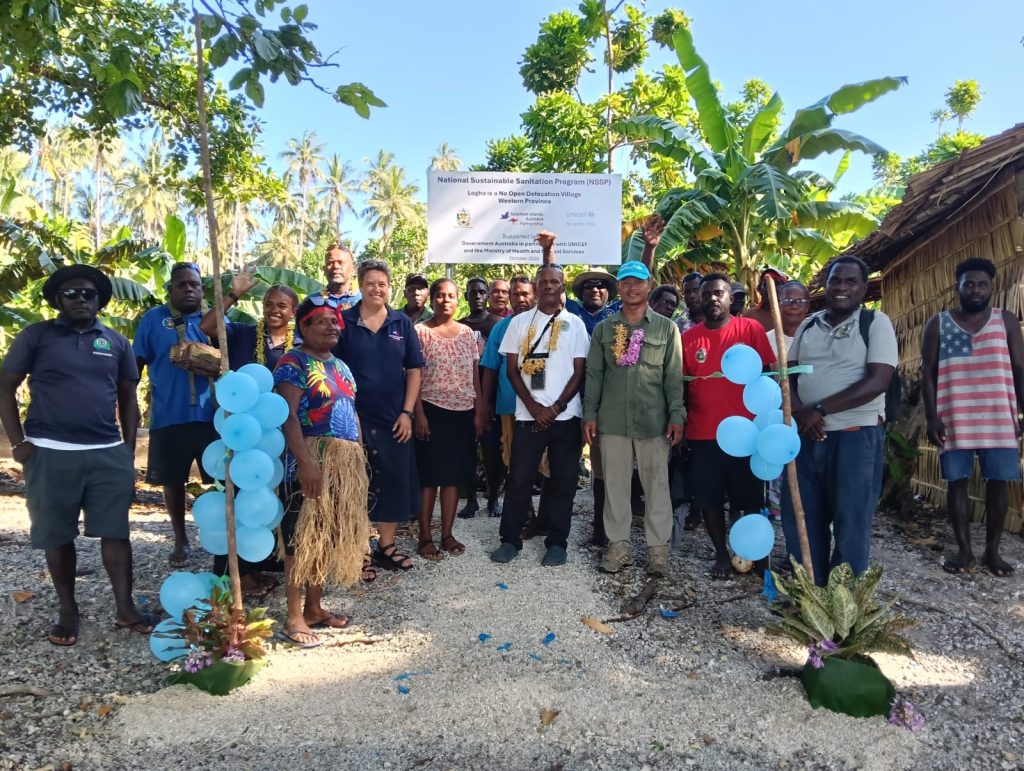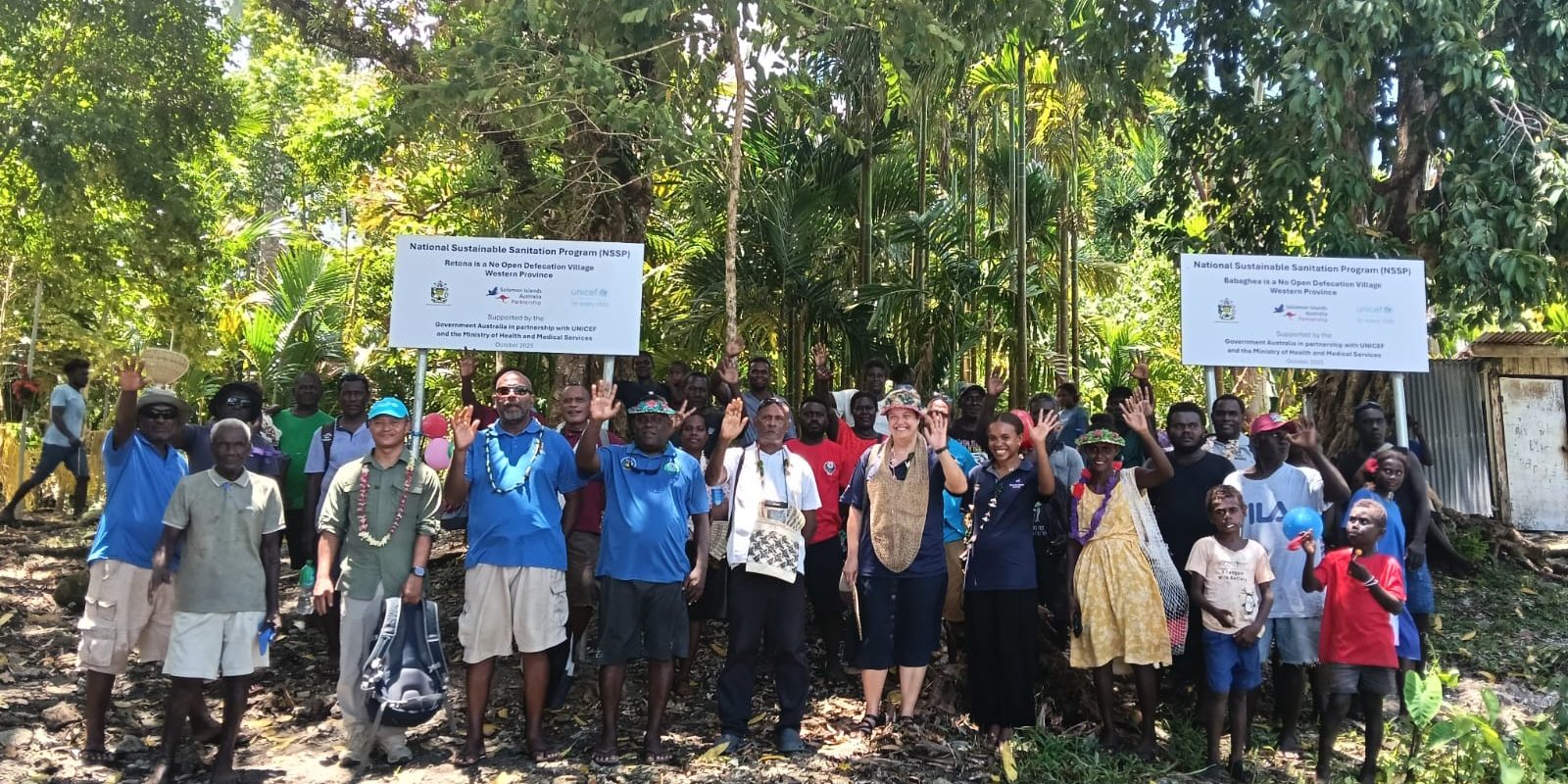THE Western Province has reached another major milestone in its efforts to improve sanitation and public health, with seven communities in Rannoggah and Kolombangara officially recognized for achieving ‘No Open Defecation’ (NOD) status.
The achievement was celebrated during a special ‘NOD’ celebration conducted in some of the communities from October 27th to 30th, 2025.
The celebration featured leaders and partners who gathered to acknowledge the province’s ongoing commitment under the National Sanitation Sustainability Program (NSSP).
The event brought together key dignitaries, including the Hon. Premier of Western Province, Provincial Ministers, the Permanent Secretary for Health and Medical Services, and representatives from DFAT, UNICEF, Provincial Assembly Members, and other development partners.
Western Provincial Health Minister Hon. George Kenneth speaking at the event praised the strong collaboration between the Ministry of Health and Medical Services (MHMS), UNICEF, DFAT, and other key partners in driving improved sanitation and hygiene standards throughout the province.
The Health Minister George Kenneth said under the NSSP, 159 communities across Western Province were targeted for improved sanitation.
The official confirmed that all 159 communities have now been “triggered,” demonstrating high levels of community engagement and ownership.
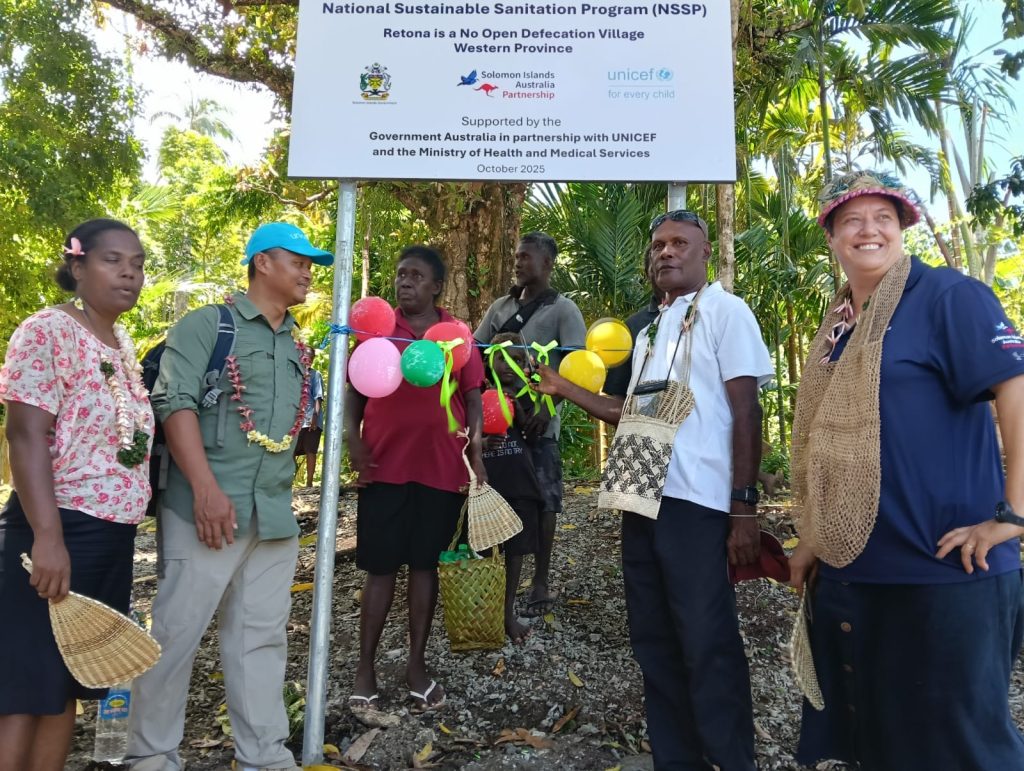
“Out of these, 31 communities have achieved NOD status — including the seven newly recognized communities they are Babagea, Retona, New Bare and Central Buri and Logha Rannoga island and three in communities in Kolombangara, Ilitona, Pine and Patupaele community.
While commending the achievements so far, the Health Minister emphasized that the journey toward full provincial sanitation coverage is “far from complete.”
“The Western Provincial Government has set a clear target to achieve full NOD status across all communities by implementing a Costed NOD Plan (2026–2030).
“The plan outlines the following goals: 2026: Construction of 95 toilets, 2027–2030: Construction of 100 toilets annually.”
He said, this road-map aligns with the National Health Strategic Plan and the Solomon Islands National Development Strategy, ensuring that sanitation and hygiene remain central to sustainable health and development.
UNICEF’s WASH Specialist Chris Kahyanto stressed that sanitation improvement goes beyond simply constructing toilets — it is fundamentally about safeguarding the health and dignity of children.
He highlighted that diarrhea continues to claim the lives of hundreds of thousands of children around the world each year, a tragedy that can be prevented through clean water, proper toilets, and regular hand washing with soap.
According to Kahyanto, the program’s goal is to build a future where every child can go to school in good health and in a safe, hygienic environment.
He added that the initiative is closely aligned with the Ministry of Health and Medical Services (MHMS) Strategic Plan and the National Sanitation Sustainability Program (NSSP), both of which aim to ensure universal access to safe sanitation and hygiene across the Solomon Islands.
Most of the projects have been implemented by ADRA.
The celebration marked a proud moment for Western Province — a step closer toward its vision of becoming open defecation free, healthy, and proud.
By ULUTAH GINA
Solomon Star, Gizo
